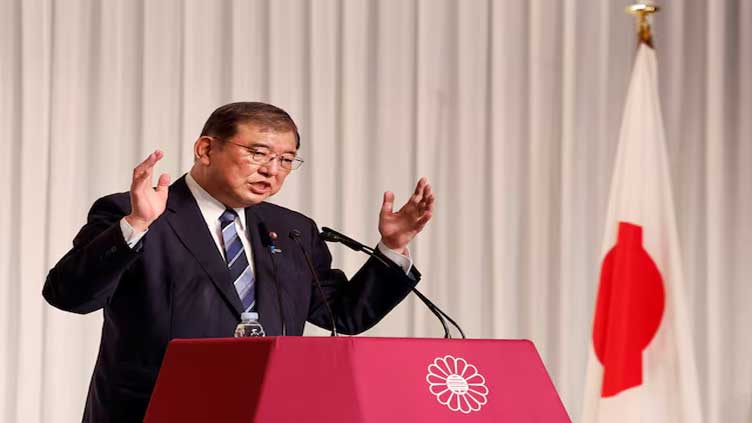Incoming Japan PM Ishiba's 'Asian NATO' idea test for US diplomacy

World
Incoming Japan PM Ishiba's 'Asian NATO' idea test for US diplomacy
TOKYO (Reuters) - Shigeru Ishiba, tapped to be Japan's next prime minister, may cause diplomatic headaches for the US with proposals to revamp Tokyo's closest alliance by locking Washington into an "Asian NATO" and stationing Japanese troops on US soil.
Ishiba, elected leader of the ruling Liberal Democratic Party on Friday, outlined his plan in a paper to the Hudson Institute think tank last week. He argues that the changes would deter China from using military force in Asia.
"The absence of a collective self-defence system like NATO in Asia means that wars are likely to break out because there is no obligation for mutual defense," he wrote. Ishiba, like many Japanese politicians, has voiced concern over a surge in Chinese military activity around Japanese islands.
The NATO idea, however, has already been rejected by Washington, with Daniel Kritenbrink, the assistant secretary of state for East Asia and the Pacific, dismissing it as hasty.
"He's very technical about military matters but in terms of national security diplomacy, he really hasn't shown much chops," said Joseph Kraft, a financial political analyst at Rorschach Advisory in Tokyo.
Ishiba, however, doubled down on his idea on Friday, telling a press conference that "the relative decline of the US might" made an Asian treaty organisation necessary.
Since its defeat in World War Two, Japan has been in the embrace of Washington, which provides protection with its nuclear arsenal and has an aircraft carrier, fighter jets and some 50,000 troops in Japan.
Ishiba's potentially disruptive changes would come as the U.S. presses for closer ties, Tokyo seeks defence cooperation with South Korea and Australia, and forges security ties with European nations, including Britain and France, to counter China's growing influence.
Ishiba's NATO would combine a collection of existing diplomatic and security pacts, including the Quad grouping - Japan, the US, Australia and India - the AUKUS agreement of Canberra, Washington and London, and Japan's deepening security cooperation with neighbour and rival Seoul.
The new security alliance, Ishiba said, could even share control of Washington's nuclear weapons as a deterrent against Japan's nuclear-armed neighbours.
Campaigning before Friday's vote, Ishiba said he wanted to rebalance Japan's alliance with the US, including greater oversight of US military bases in Japan - a regular source of friction with locals.
In his Hudson paper, Ishiba, who has a reputation as a troublemaker in the LDP, also said Japan's military alliance with the US could be revised to allow Tokyo to station troops in Guam, a US territory, for the first time since 1944.
"I would venture to guess that that's not going to happen," said Rintaro Nishimura, an associate at The Asia Group Japan. "It looks like he's trying to kind of fundamentally change the relationship, but not in a completely negative way."


